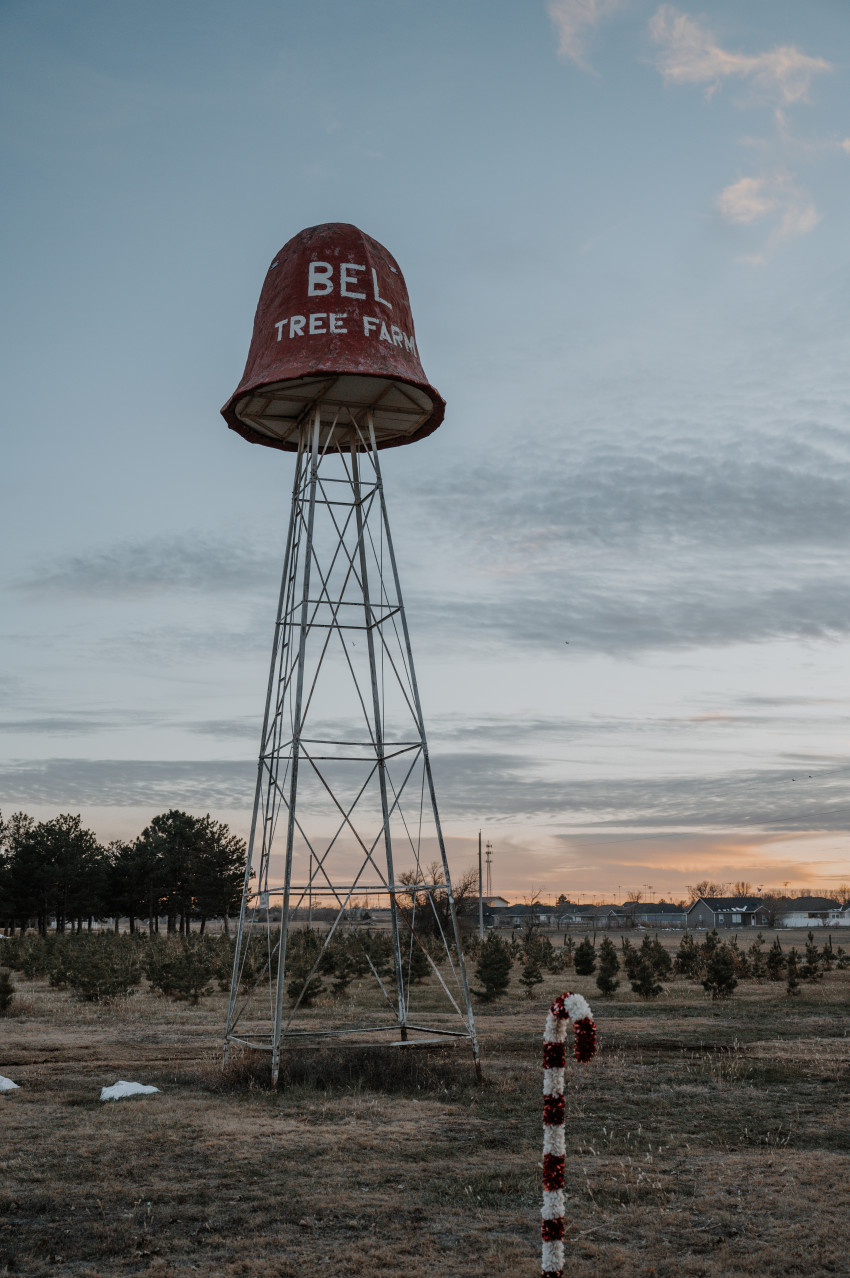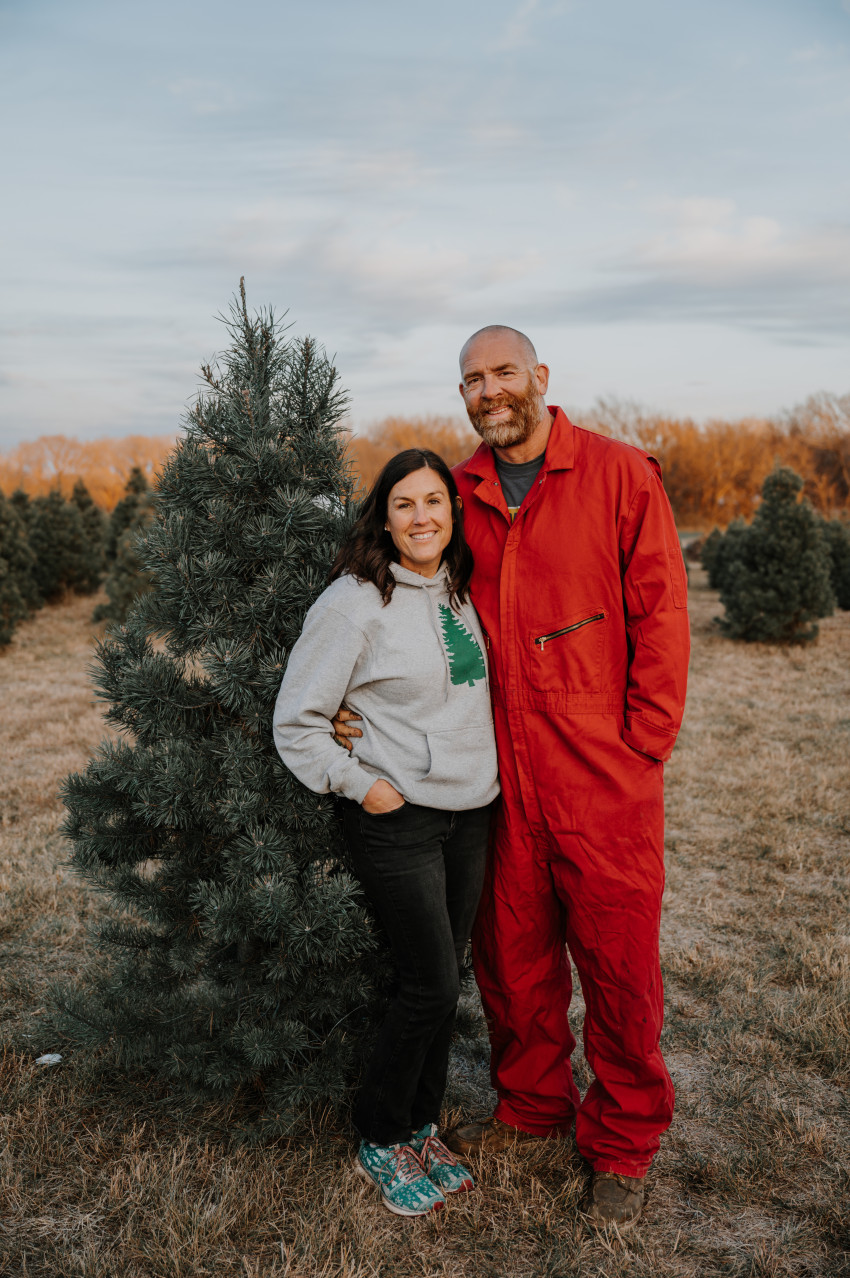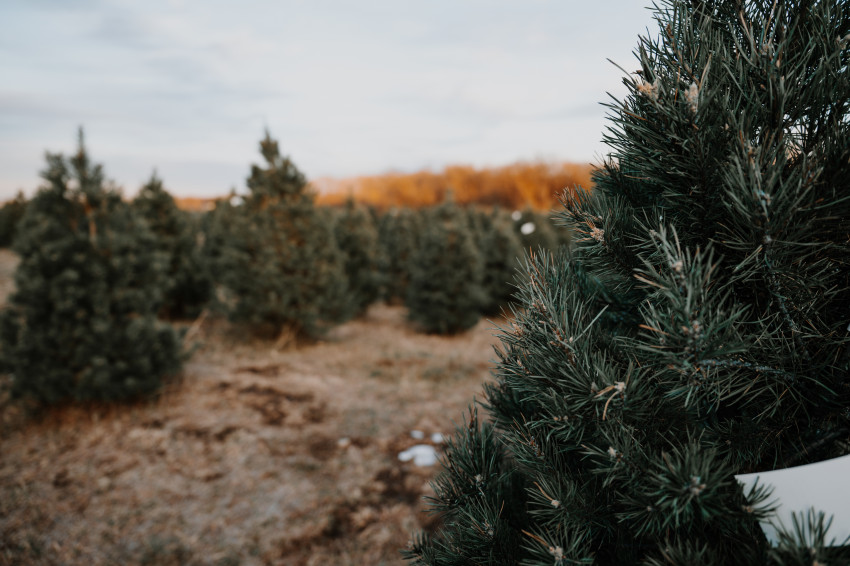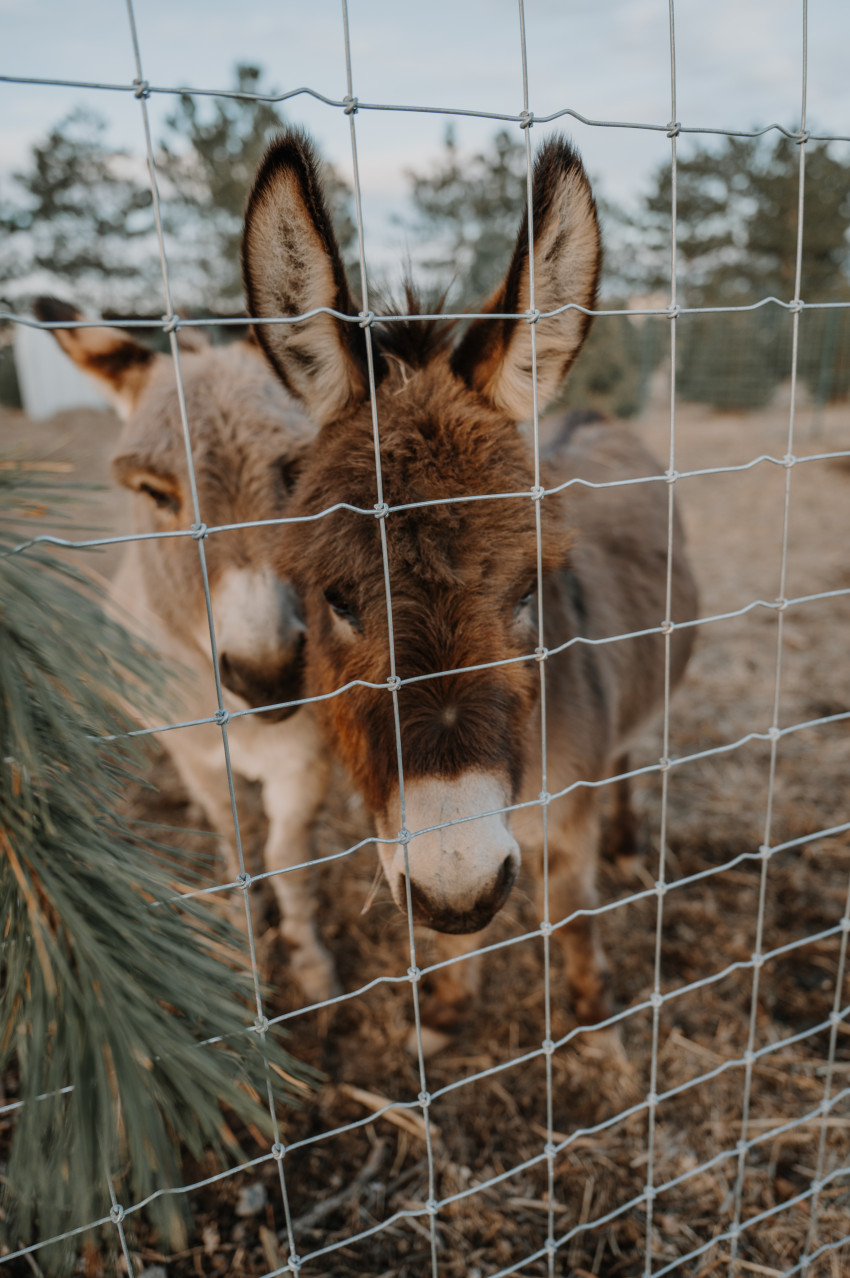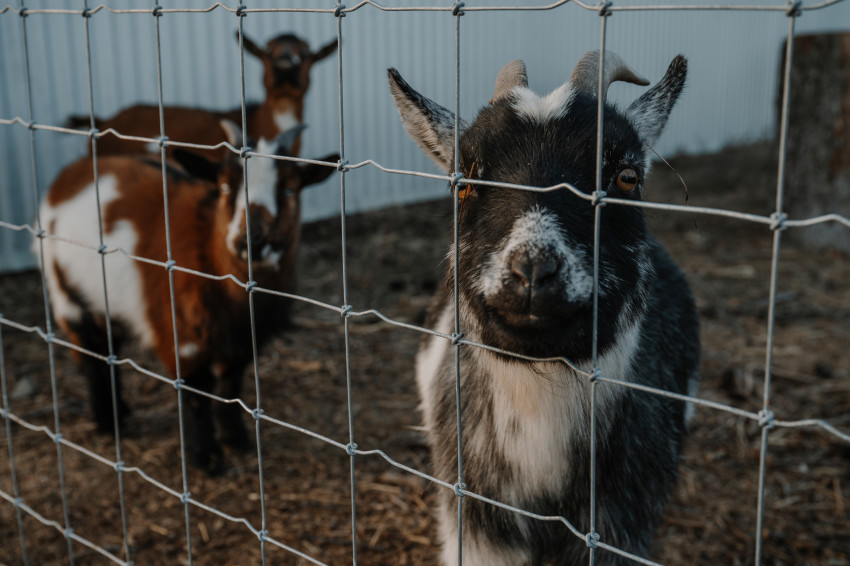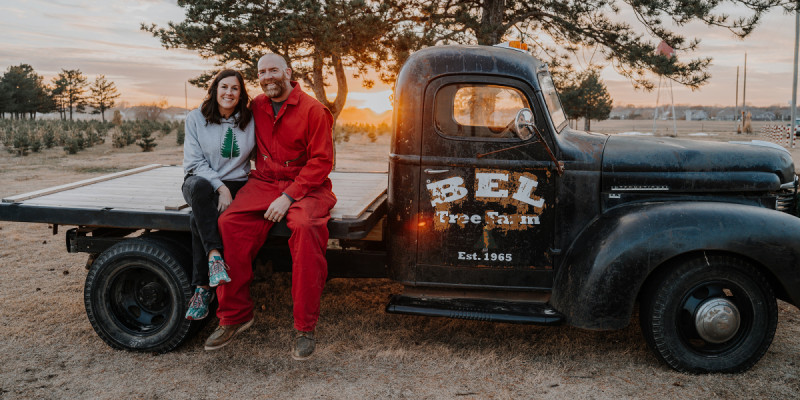By Sheridan Wimmer on October 24, 2024
BEL Christmas Tree Farm Manages Through Drought
Jingle BELs: Saline County Christmas Tree Farm cultivates joy and tradition
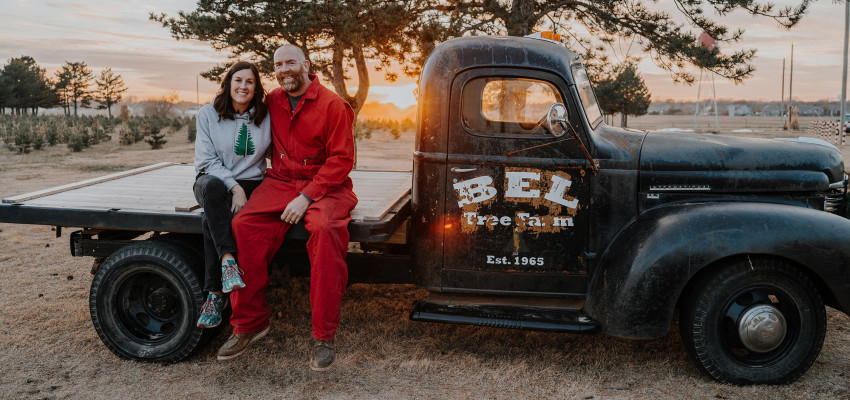
Just to the east of Salina sits a large bell on stilts with three letters – “BEL.” While you may consider that maybe the spelling of bell is incorrect, there’s a reason for the missing second ‘l’.
“The farm started in 1965,” says Aaron Peck, current owner and operator of BEL Christmas Tree Farm, along with his wife, Michelle. “Three teachers started it and each of their last names started with a B and an E and an L, so that’s why there’s a missing ‘l’ on bel.”
During the ‘70s, Jerry and Marlene Eck, the E in BEL, were the main owners and Aaron worked for them throughout high school and some while he was in college.
“When the Ecks were in their 80s, they were wanting to slow down a little bit and so they asked if we were interested in purchasing it,” Aaron says. “We’re now in our seventh season.”
Michelle and Aaron both work full-time jobs outside of the Christmas tree farm and raise their two kids, Adia and Noah.
“Aaron owns a chemical company called BluTerra, and I run the automobile museum called The Garage here in Salina,” Michelle says. “We’re busy, but we love the Christmas tree farm because we get to raise our kids with this experience. And the sunsets are beautiful out here.”
Managing drought on a Christmas tree farm
The farm’s Scotch and Austrian pine trees stretch across 17 acres. Their first few years owning the farm, the Pecks say they received plentiful rains. However, the past two to three years have seen a decline in consistent, adequate moisture.
Six-foot Christmas trees enjoy at least one gallon of water per day of water to drink, and the last few years of drought have posed challenges for the Pecks.
“In a typical lifecycle for a Scotch pine, for instance, it would be ready for harvest in five to seven years,” Aaron says. “But with this drought, many trees that we planted six, seven years ago will probably need another two years before they’re really ready to harvest.”
Navigating Mother Nature is challenging for any farmer, but for Christmas tree farmers in particular, taller trees are typically the preference. Relying on adequate growth in a season to meet that demand becomes a keep-you-up-at-night worry when Mother Nature doesn’t provide moisture for the trees to develop.
“It’s difficult when we're in a situation like this where we don't have a real good means to water or irrigate,” Aaron says. “We are spread out over 17 acres, so we’d need multiple wells.”
The drought has caused the Pecks to supplement their tree quantity by buying pre-cut trees, which means smaller margins for their family-owned business.
“There’s upfront costs and freight is a killer,” Aaron says. “All of those things impact your bottom line.”
Typically, the family will plant 1,500 to 2,000 trees each year. Aaron says they were going to skip planting this year because of the drought but decided to put in around 350 trees. When rain didn’t come, that meant the trees were highly stressed; they lost all but two trees.
“I’ve never had that happen, and it’s heartbreaking,” Aaron says. “By the time I saw the trees show signs of stress, it was too late. The next day, all but two were brown.”
Despite the hardships of dealing with loss through a drought, Aaron and Michelle aren’t going anywhere.
“Even on the most stressful days, there’s never a case of thinking I don’t want to do this anymore,” Aaron says.
Ringing in treasured tradition
The Pecks love providing a family holiday experience at their farm. Featuring Christmas trees is the spotlight, but there’s also a gorgeous pine building filled with accoutrements like ornaments, wreaths, sweaters and several photo backdrops. The donkeys and goats are also a special part of the experience.
“Aaron wants there to be things for people to be able to do out here, even if they’re not getting a tree,” Michelle says. “They’re welcome to come partake in the tradition of walking into the trees or petting our donkeys and goats.”
“Even though this isn’t a traditional farm per se, there’s a lot of young parents who maybe visited their grandparents’ farm,” Aaron says. “I think when they come out and bring their kids, it’s this whole experience they don’t typically get. I love connecting them to a farm, and I think the donkeys and goats bring that feel.”
BEL Tree Farm opens the Friday after Thanksgiving each year, and they’re very popular that first weekend.
“We have people in line at 7 a.m.,” Michelle says. “Our opening weekend is huge, then by about the third weekend in December, we’re typically sold out.”
Mark your calendars for the day after Thanksgiving each year to get your BEL Christmas tree. Get there early for a tree, stay for the donkeys and goats.
Learn more about BEL Christmas Tree Farm at www.beltreefarmsalina.com and follow them on Facebook at www.facebook.com/BELTreeFarm.

